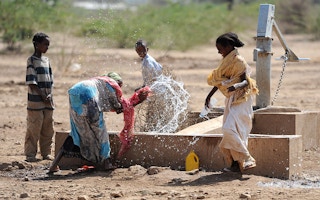Sourcing data on water management from private corporations has been identified by the World Resources Institute (WRI) and the Massachusetts Institute of Technology (MIT) as a new way to respond to the water crisis plaguing developing countries.
According to a paper by the WRI published this month (March), while extensive data is available on global water scarcity, very little exists on water management practices. Poor management could create scarcities even where water is abundant, says Colin Strong, an author of the paper and corporate water stewardship analyst at WRI.
Meanwhile, multinational corporations (MNCs) have reliable data on water management in their local areas because the information is vital for minimising business risk.
The WRI-MIT initiative aims to produce the first geodatabase on municipal water management that relies on MNCs to provide information on public water management.
“
By contributing data to our project, they help generate momentum to improve local water management and, therefore, reduce their business risk.
Colin Strong, corporate water stewardship analyst, World Resources Institute
Crowdsourcing is due to start running at full capacity this summer, according to Strong, with data grouped into four broad categories: availability of information, state of infrastructure, water access regulations, and crisis response.
“The reason [why] companies are willing to help crowdsource is that companies experience poor water management as a risk to business,” Strong tells SciDev.Net. “By contributing data to our project, they help generate momentum to improve local water management and, therefore, reduce their business risk.”
The new methodology has practical applications for those involved in water management. For instance, utility operators can use the geodatabase as a third-party certified feedback mechanism to help improve services.
National governments that struggle to understand what is happening at the local level, such as India, will find the geodatabase useful in “better connecting with local problems and be able to channel investments more precisely in locations with issues”, says Strong.
Meanwhile, international institutions that finance utilities based on self-reported information, like the Asian Development Bank, will be able to use the independent geodatabase to put pressure on utilities to perform better.
Diana Suhardiman, a Lao-based senior researcher for policy and institutions at the International Water Management Institute, tells SciDev.Net that while the initiative will help fill information gaps in water management, it runs the risk of framing data in a way that is not neutral or apolitical.
Suhardiman stresses that private companies collect water management information to justify their business and investment strategies, regardless of the impact to society at large. There is also the issue of who will gain access to the collected data, she says.
“Unpacking how power relationships and political processes shape and reshape ‘informed’ decision is key to link this new initiative with the broader question of water governance and social justice,” says Suhardiman.
There are questions over how it can meaningfully contribute to solving problems such as unequal water distribution, environmental degradation, water scarcity and water pollution, she adds.
This piece was produced by SciDev.Net’s Asia & Pacific desk.
This article was originally published on SciDev.Net. Read the original article.










